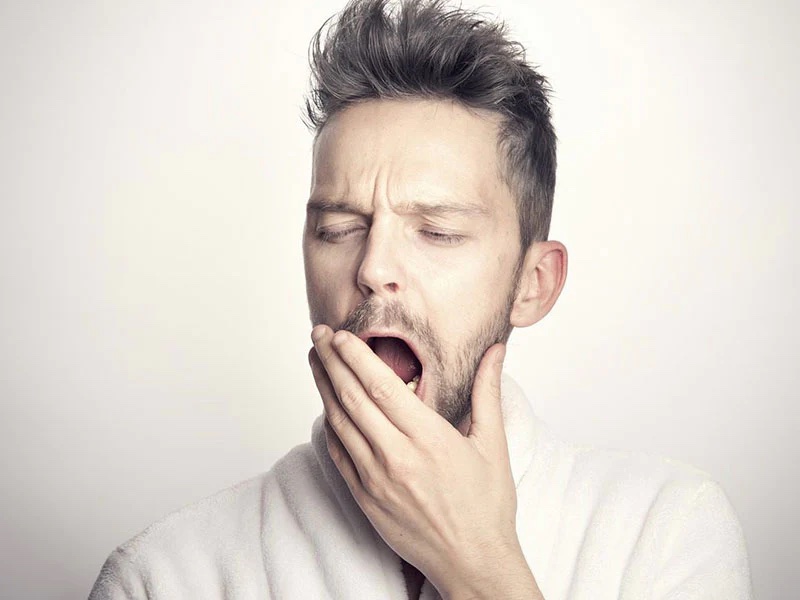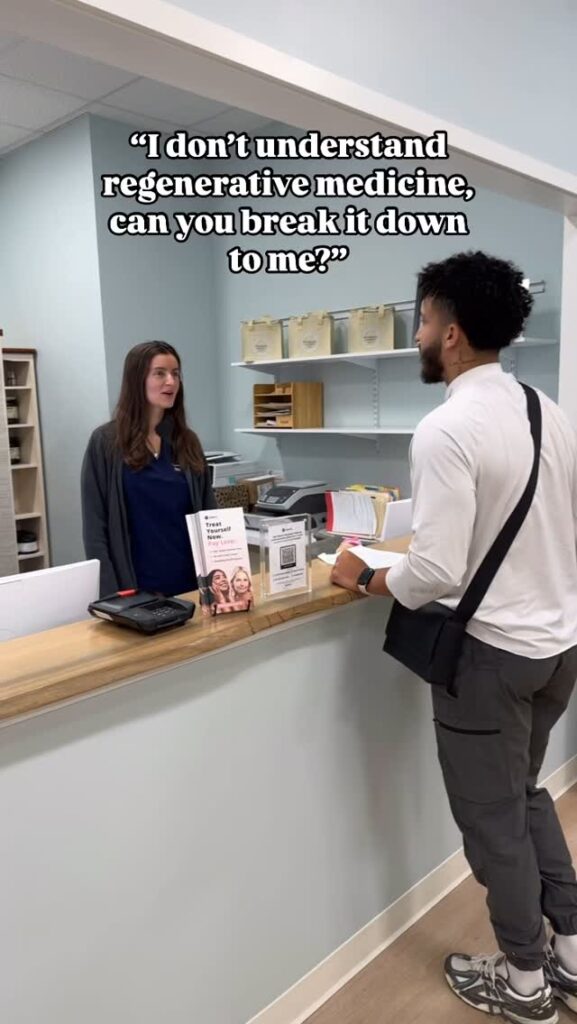- Quality sleep plays a huge role on how we function throughout the day. It also leads to sharper memory, greater creativity, and longer life.
- One of the biggest factors that causes poor sleep in insomnia. This common disorder is brought about by excessive stress, irregular sleep schedules, chronic pain, and medications.
- A popular way to combat insomnia naturally is by taking natural supplements. From magnesium to herb-infused sleep supplements, these natural sleep alternatives can improve your sleep quality.
- Among other ways to improve sleep is to make healthy lifestyle changes. Sticking to a sleep schedule, eating healthier, and exercising regularly are important, as well.
The topic of sleep has garnered a lot of attention in recent years. Huffington Post founder Ariana Huffington wrote a book about it. The New York Times declared it the new status symbol. And the National Institutes for Health (NIH) spends over $300 million a year to study it.
Of course, everyone knows sleeping is good for you. But only now are we fully understanding its benefits. Studies have found that quality sleep is tied to everything from sharper memory, greater creativity, and even longer life.
The sad truth, however, is that 70% of adults in the country don’t get enough sleep. What is causing this serious shortage of sleep? And how can it be solved?
Insomnia—the leading sleep disorder
While sleep comes easily to most people, others have disorders that make it a struggle. Chief among these is insomnia, which affects up to a quarter of all Americans.
People with insomnia find it hard to fall and stay asleep. As such, they wake up tired and feel lethargic throughout the day. This lack of energy can severely affect their capacity to function at home and at work.
Most people will experience a bout of acute insomnia at some point in their life, usually following a stressful event. But if their difficulty with falling asleep lasts more than three months, they may have chronic insomnia.
Insomnia is often caused by an underlying issue, which can include:
Excessive stress. Today’s fast-paced life offers no shortage of stress. Whether you’re worried about school, work, finances, or relationships, being constantly anxious causes the body to be hyperalert, thus hampering sleep. Insomnia may also arise from traumatic events such as an accident or a loved one’s passing. Unfortunately, some people are more sensitive to stress than others and are more likely to develop insomnia.
Irregular sleep schedule. In an ideal world, people maintain a regular bedtime. However, many professionals work shifting schedules, meaning they work late at night and sleep through the day. Frequent flyers, meanwhile, often cross international time zones which leads to jet lag. Irregular sleep schedules can disrupt your circadian rhythm—the body’s main clock—which can lead to insomnia.
Lifestyle. In many cases, insomnia is a product of one’s lifestyle. For instance, people who tinker with their phones before bedtime often struggle to sleep. Eating a heavy dinner or drinking coffee late at night might cause sleeplessness, too. Taking a nap in the afternoon can also throw off your circadian rhythm and disrupt your body’s sleeping schedule. If you’re dealing with sleepless nights, examine whether your pre-bedtime activities are contributing to it.
Mental health issues. Biologically speaking, sleep is defined as a phase when the nervous system—and by extension, the entire body—is largely inactive. If your mind is troubled, however, attaining sleep will be quite difficult. Unfortunately, a study by the University of Pennsylvania’s Division of Sleep Medicine found that 40% of people with insomnia have a mental health disorder. Clinical depression and severe anxiety can cause one’s mind to dwell on negative thoughts, causing hyperarousal of the brain and therefore the inability to sleep.
Chronic pain. Sleep is an opportunity to wind down and relax, but it’s hard to do so if you’re dealing with chronic pain. Data from the Centers for Disease Control and Prevention (CDC) found that one in five Americans deal with this issue. Chronic pain can be caused by injuries or by medical conditions such as nerve damage.
Medications. Prescription drugs for asthma, hypertension, and depression often have sleeplessness as a side-effect. Meanwhile, over-the-counter drugs like antihistamines and cough syrups can make you feel like napping during the day, which can hinder your ability to sleep at night.
Other factors that cause sleeping problems
Unfortunately, insomnia isn’t the only sleep disorder that can trouble people. These conditions can cause sleeplessness, too:
Sleep apnea. This disorder is caused by the blockage of the upper airway during sleep, causing people to wake up gasping for air. Sleep apnea can be obstructive, such as when the tongue slips back into the throat. It can also happen when the brain stops signaling the body’s breathing mechanism to function properly.
Restless leg syndrome. Otherwise known as Willis-Ekbom Disease, restless leg syndrome (RSL) causes uncomfortable sensations in the legs, particularly throbbing and itching. These symptoms manifest most strongly while laying down, which can interrupt the onset of sleep.
Delayed sleep disorder. When your biological clock is significantly delayed, you may find it hard to sleep and wake up at normal hours of the day. People with delayed sleep disorder typically do not fall asleep earlier than 2 A.M., making it hard to keep up with the usual nine-to-five grind.
Natural supplements can help
When it comes to sleep problems, we believe that nature is the best doctor. That’s why we offer a selection of natural supplements that can help you get the restful sleep you long for and deserve.
The magic of magnesium
Magnesium is one of the most abundant naturally occurring elements on the planet. More importantly, it’s a mineral that supports many bodily functions, including relaxing the mind and body—the key to restful sleep.
Our Min-Tran capsules help promote a healthy nervous system and act as a mild calmative. It also has calcium and iodine which support the neurotransmitters that regulate your mood.
E-Z MG, meanwhile, is a plant-based magnesium supplement derived primarily from Swiss chard and buckwheat. It contains multiple forms of magnesium and is thus more easily absorbed by the body. Best of all, it is 100% gluten-free, vegan, and organic.
Herbs for healthy sleep
Our herb-infused sleep supplements marry the wisdom of traditional medicine with the precision of modern science. Made from the highest quality natural ingredients, these sleep aids are completely safe and guaranteed effective.
Nervagesic, one of our best-sellers, contains California poppy, Jamaican dogwood, and Corydalis yanhusuo, which are traditionally used to promote muscle relaxation and support nervous system functions.
Meanwhile, our Ashwagandha Complex supplement contains ashwagandha, licorice, skullcap, and Korean ginseng, adaptogenic ingredients that counteract the effects of stress on the body.
Those looking to relieve nervous tension before bedtime would do well to try Valerian Complex. It’s infused with valerian root, an herb native to Europe and Asia which has long been used to treat insomnia and anxiety. This supplement is made even more potent with the addition of passionflower and Ziziphus jujuba var.spinosa.
Another great option is Kava Forte, which contains kava root extract, an ingredient long used by South Pacific islanders in ceremonial drinks to promote relaxation. To ensure that the full spectrum of kavalactone compounds is collected, the kava root undergoes 100% water-based extraction.
Supplements for serene sleep
Good sleep is the product of healthy habits, so we also carry supplements that people can easily add to their daily diet. One such product is DReM Sleep Aid, which modulates the metabolism of melatonin, the so-called sleep hormone. It’s reinforced by naturally occurring neurotransmitters and beneficial herbs which make sleeping easier and more restful.
Of course, Whole Body Solutions reminds customers to always consult their doctors before taking any supplements. Although our products are naturally derived, they may have contraindications against certain health conditions.
Other healthy ways to experience better sleep
While natural supplements can improve your sleep quality, they will be much more effective if coupled with healthy lifestyle changes. Below are proven ways to make your sleep more restful.
Stick to a sleep schedule.
People who sleep well also tend to have a regular sleep schedule, which reinforces the body’s natural circadian rhythm. If you turn in early one night and binge-watch until 3 A.M. the next evening, you’ll only be disrupting this cycle. And here’s another reason for setting a sleep schedule: having irregular bedtimes can double your risk for heart disease.
Studies also show that every hour of variability in your bedtime raises your risk of getting a metabolic disorder by 27%.
Make your diet healthier. People say you are what you eat, but did you know that your diet also affects sleep quality? This is exactly what Dr. Ana Krieger of New York-Presbyterian and Weill Cornell Medicine found. According to her research, eating healthier provides your brain with the nutrients it needs to create the amino acids that induce and maintain sleep. Her study found that a diet low in fiber but high in saturated fat and sugar is linked to less restful sleep.
Exercise regularly. Just how effective is exercise in helping you sleep? According to one study, working out helped people with chronic insomnia fall asleep up to 13 minutes faster and stay asleep 18 minutes longer. While the link between exercise and sleep quality is not yet fully understood, experts do have a few theories on it. Your body tends to cool down right before you fall asleep, just as it would after vigorous activities like working out. This drop in core body temperature post-exercise possibly signals your brain that bedtime is near, thus promoting sleep. Since exercise also releases feel-good brain chemicals called endorphins, it can help alleviate anxiety and depression, which often hamper good sleep.
Stay cool. How cool your bedroom is can play a crucial role in improving your sleep. As this article from HopkinsMedicine.org notes, temperatures between 65℉ and 72℉ are the most conducive to sleep. This goes back to our body’s tendency to get cooler at night right before we sleep. There’s no definitive explanation for this phenomenon, but some experts suggest that by lowering core temperature, our body conserves energy. Lowering your thermostat even a little bit, therefore, can help induce sleep.
Create a restful environment. If you want restful sleep, make sure your bedroom is conducive to slumber first. Luckily, there are many things you can do to make it as sleep-friendly as possible. Since the presence of light might trick your brain into thinking it’s daytime, make sure to turn off all the lights and fully draw your shades before turning in. You’ll also be surprised how a good mattress can improve sleep quality, so consider investing in a new one if your current bed is over 10 years old. And to create a spa-like environment, consider diffusing soothing essential oils like lavender or vanilla before bedtime.
Manage your stress. Stress is part of everyday life, but learn to leave it behind your bedroom door. If your mind is still racing by bedtime, create an evening winddown routine so you can calm your thoughts. For instance, plan an hour of quiet time wherein you take a warm bath, practice some meditation, or listen to soft music. Since stress builds up if you don’t express your worries, consider journaling before bed so you can lay bare your concerns and draw up possible solutions. Of course, if your stress is too overwhelming, don’t hesitate to seek professional help from a counselor or therapist.
Limit phone use before bed. It’s time to make your bed a no-phone zone. Experts say that blue light from phone screens can inhibit the production of melatonin, the hormone that controls your circadian rhythm. This is because daylight is largely composed of blue light, so using your phone before bed can trick your body into thinking it’s still daytime. Blue light also increases alertness at night and compromises your brain’s ability to enter deep sleep. Furthermore, receiving messages or app notifications in the middle of the night can disrupt your sleep. Fortunately, most phones nowadays have a do-not-disturb mode that silences notifications during pre-defined hours.
Get the sleep you need
Still struggling with sleep? Allow Dr. Ann Doggett of Wholebody Solutions to help.
Dr. Ann has 30 years of experience in chiropractic care, nutrition counseling, and holistic medicine. Her areas of expertise include applied kinesiology, whole food supplementation, and energetic muscle testing.
She received her degree at the New York Chiropractic College and completed her master’s in human nutrition at the University of Bridgeport. She also received a certificate in practical herbal therapy from the Australian College of Phytotherapy.
If you wish to uncover and address the underlying causes of your sleeplessness, contact our practice by calling 617.328.6300 or send an email via our contact form.


 Opened more than 30-years ago by Dr. Ann Doggett, WholeBody Solutions is a holistic wellness center whose mission is to provide the community with safe, effective, and natural answers to health and wellness concerns. Our all-encompassing wellness center focuses on the following drug-free services: Nutrition, Chiropractic, Acupuncture, and Weight Loss. Our goal is quite simple – to make sick people well and to keep healthy people healthy. It’s that simple and that powerful.
Opened more than 30-years ago by Dr. Ann Doggett, WholeBody Solutions is a holistic wellness center whose mission is to provide the community with safe, effective, and natural answers to health and wellness concerns. Our all-encompassing wellness center focuses on the following drug-free services: Nutrition, Chiropractic, Acupuncture, and Weight Loss. Our goal is quite simple – to make sick people well and to keep healthy people healthy. It’s that simple and that powerful.

